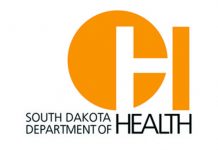The 93rd Session of the South Dakota Legislature is midway through its fifth week. When the deadline for bill submissions was reached, there were 534 legislative proposals plus many resolutions filed, pushing the session to a 17-year high for bills filed.
HB 1250, the proposal to increase the age requirement for purchasing tobacco from 18 to 21 years, passed 8-4 out of the House Health and Human Services Committee. SDAHO is supporting this legislation (see Bill Monitor). The bill now moves to the full House for consideration.
Two telemedicine bills, SB 122 and SB 123, were scheduled to be considered in the Senate Health and Human Services Committee, however the sponsor pulled the bills. SDAHO was monitoring these proposals, which were substantially amended previously. The use of telemedicine continues to be a key tool in ensuring South Dakotans have access to care, particularly in rural areas. It is not clear whether these proposals will be further revised before another legislative committee hearing is scheduled.
In addition, in an effort to address opioid abuse, SB 176 proposes that new prescriptions be limited to seven days. SDAHO opposed the bill and provided testimony as SB 176 would significantly interfere with the provider-patient relationship. After a lengthy debate the bill was defeated and moved to the 41st day.
Other important health care issues being tracked include proposals requiring the legislature to approve any state Medicaid plan changes/waivers (SB 190); changes to how the shared savings from implementation of the 100 percent FMAP initiative are distributed (HB 1266); and a proposal to increase tobacco tax and share revenues with post-secondary technical education, tobacco prevention efforts, nursing facilities and community provider funds (HB 1274).
The Joint Committee on Appropriations (JCA) heard testimony from the Department of Social Services (DSS) related to their annual budget early this week. The agency is requesting $17 million in federal funds for the Eligibility and Enrollment Modernization Project, which is an information system to determine eligibility for Medicaid. The agency fielded questions from legislators on the shared savings program to providers, medical health homes and the victim services program.
The state’s revenue estimate presentations by the Bureau of Finance and Management (BFM) and the Legislative Research Council (LRC) economists are expected to be presented to the JCA on Feb. 12.







